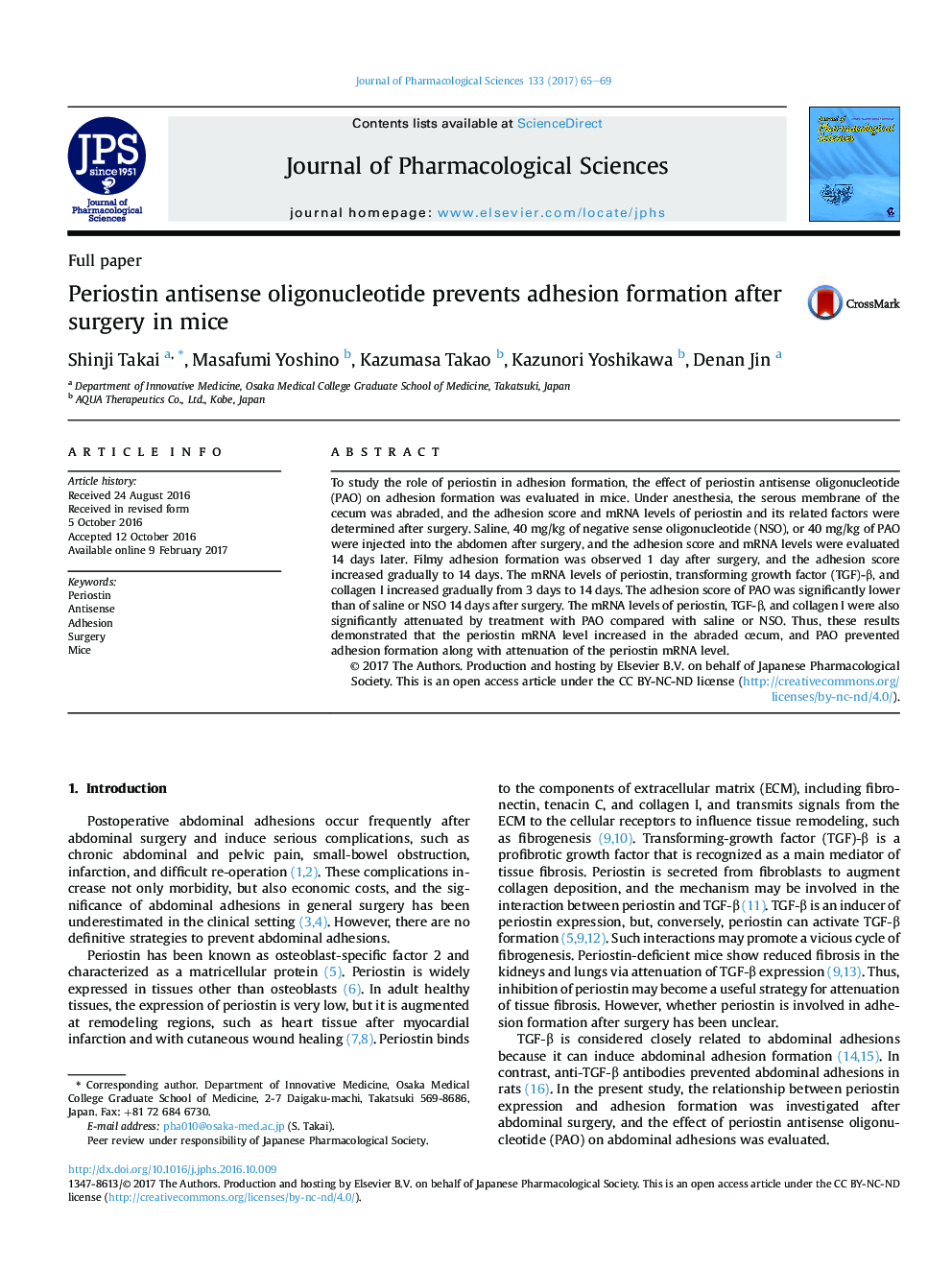| Article ID | Journal | Published Year | Pages | File Type |
|---|---|---|---|---|
| 8533441 | Journal of Pharmacological Sciences | 2017 | 5 Pages |
Abstract
To study the role of periostin in adhesion formation, the effect of periostin antisense oligonucleotide (PAO) on adhesion formation was evaluated in mice. Under anesthesia, the serous membrane of the cecum was abraded, and the adhesion score and mRNA levels of periostin and its related factors were determined after surgery. Saline, 40 mg/kg of negative sense oligonucleotide (NSO), or 40 mg/kg of PAO were injected into the abdomen after surgery, and the adhesion score and mRNA levels were evaluated 14 days later. Filmy adhesion formation was observed 1 day after surgery, and the adhesion score increased gradually to 14 days. The mRNA levels of periostin, transforming growth factor (TGF)-β, and collagen I increased gradually from 3 days to 14 days. The adhesion score of PAO was significantly lower than of saline or NSO 14 days after surgery. The mRNA levels of periostin, TGF-β, and collagen I were also significantly attenuated by treatment with PAO compared with saline or NSO. Thus, these results demonstrated that the periostin mRNA level increased in the abraded cecum, and PAO prevented adhesion formation along with attenuation of the periostin mRNA level.
Related Topics
Health Sciences
Pharmacology, Toxicology and Pharmaceutical Science
Pharmacology
Authors
Shinji Takai, Masafumi Yoshino, Kazumasa Takao, Kazunori Yoshikawa, Denan Jin,
